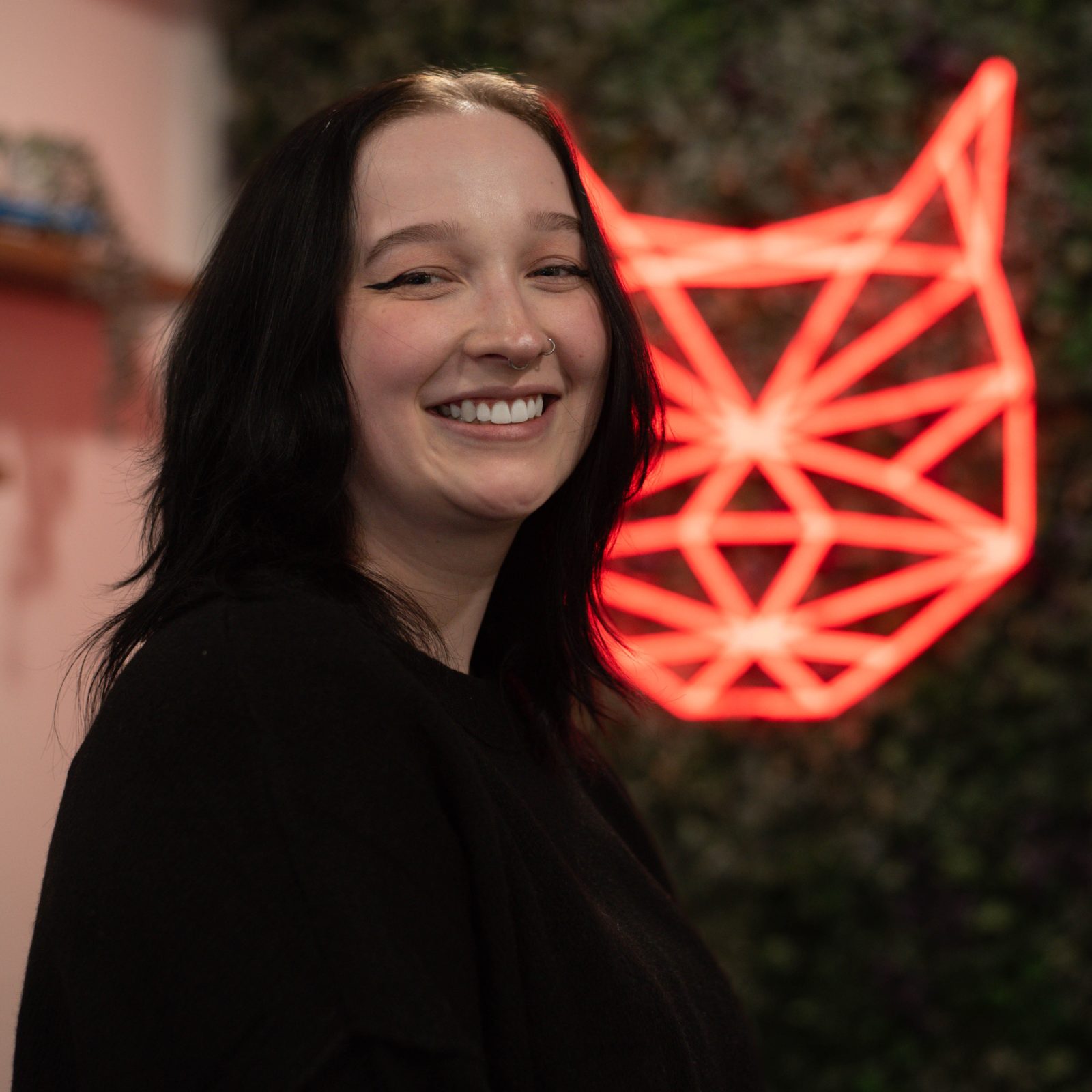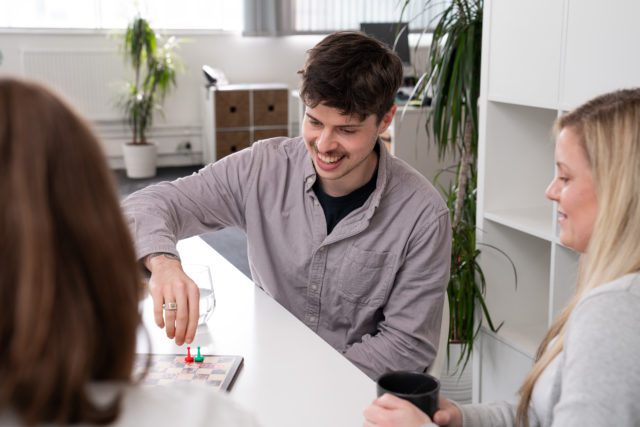Do you want your content to stand out and drive results online? To position yourself as an expert in any given subject, writing in-depth, interconnected content is essential. A topic cluster is a smart way to structure your content to maximise its impact, both for your readers and search engines. According to a recent HubSpot study, websites with structured topic clusters experienced a 43% increase in organic traffic compared to those without. So, what is a topic cluster, and why is it important?
A topic cluster is a group of related content pages on a website. The main page is often referred to as a pillar page, linking to more specific, granular pieces. Creating a topic cluster is important for internal linking, in-depth content coverage, and establishing yourself as an expert in your area. This, in turn, encourages readers to trust your content, improving authority and results.
Keep reading to learn more about the importance of a topic cluster in SEO and how you can create your own topic cluster.
Imagine you are looking for information on how to choose the perfect bike for your needs. The first website you come across includes brief, generic tips on high-quality bikes. The second website you find offers a selection of in-depth, granular pages on the different types of bikes and their benefits. Chances are you are likely to trust the second website’s expertise in the industry more, and would be more likely to trust them as a reputable bike supplier.
This logic can be applied when writing content on your topic of expertise. Rather than creating thin, generic content summarising one large area, creating numerous pieces on related topics is more likely to increase the trust of readers. This can allow you to rank higher and adhere to E.E.A.T guidelines, which we touch on more below.
Read our blog “What is topical authority?” to learn more about asserting yourself as an expert online.
In-depth topic coverage lets search engines know that your content fully satisfies user intent and is valuable. When a page covers a topic comprehensively, it provides stronger context through relevant keywords, internal links, and semantic depth, helping search engines better understand its relevance. This kind of content is more likely to earn backlinks, feature in rich results, and support topical authority across a site. It shows algorithms that your content isn’t just surface-level – it’s a reliable, expert-led resource that deserves higher rankings.
Over time, covering topics thoroughly helps build topical authority, improving visibility across the board. Ultimately, you are telling Google that your content is a trusted, helpful resource – worthy of visibility.
Well-structured, in-depth content naturally incorporates related keywords, internal links, and semantic cues. All of these factors help search engines understand how the page fits within your wider site and what queries it should rank for. Rather than focusing on a single primary keyword, an in-depth content strategy allows you to include a variety of secondary and long-tail keywords that users are actively searching for.
This means you can tap into more search intent variations, such as informational questions or product comparisons. It also strengthens the semantic relevance of your content, making it easier for search engines to understand the topic in context.
Find out more in our guide “Is search intent an important ranking factor?”
Let’s start by explaining what E.E.A.T means and what it stands for. E.E.A.T is the framework used by Google to evaluate the quality and credibility of content. If you provide readers with the information that they want and they keep coming back to learn more, Google will then reward you with higher rankings and traffic.
Think of E.E.A.T as the foundation of your online reputation. By structuring your content into a cohesive topic cluster to ensure you are covering the content in-depth, you are positioning yourself as the go-to expert in your field. When your website offers a series of interconnected, detailed pages on a specific subject, you’re telling Google that you have expertise in that area, and that your readers trust you. Expertise is vital for SEO, particularly when it comes to YMYL (Your Money or Your Life) topics, such as legal matters, and financial advice.
Find out more about writing E.E.A.T content here.
So, how do you go about creating your own content cluster?
Here are some important steps to remember:
Begin by selecting a broad subject that aligns with your niche, audience’s interests and search results. This will act as the foundation of your cluster and serve as the “pillar page.” Your core topic should address a common problem or need your audience has – for example, “Home office design”, or “Running shoes for beginners.”
Your pillar page acts as the anchor for your topic cluster. It should provide an overview of the main topic and serve as a central hub that links to your subtopic pages. Think of it as the ultimate guide – a starting point for readers to explore the broader subject in-depth. For instance, a pillar page on “Running shoes for beginners” might briefly discuss shoe types, features, and fit, then link to detailed subpages on each aspect. This area can then be broken down into more specific relevant topics to address, which you can read more on below.
Next, dive deep into understanding what your audience is searching for, ensuring you cover different types of search intent. Use a keyword research tool like SEMrush and Answer the Public to uncover relevant questions, the right keywords, and subtopics related to your core topic. Look for long-tail keywords that reveal specific intent, such as “best ergonomic chairs for small spaces”, or “how to choose running shoes for flat feet.” Tools such as Google Search Console can also be used to further understand reader behaviour, and the exact query they type to reach a specific page.
Be sure to double-check keyword volume and difficulty percentage when doing your research. Remember, keywords with a lower monthly search volume and difficulty percentage will likely be easier to rank for, so it is important to find granular topics for your cluster pages.
Read our expert guide to building an SEO strategy here.
Once you have completed thorough keyword research, create your cluster topic of focused pieces that each tackle a unique question or angle. Think of these as the branches stemming from your pillar page. For example, if your core topic is “Home office design,” subtopics for cluster pieces could include:
Each subtopic should offer valuable, actionable insights that align with your audience’s needs and search intent.
Read our guide “Which keywords are best to target?” to find out more.
Internal linking is the glue that holds your topic cluster together. Ensure your pillar page links to each subtopic, and that every subtopic links back to the pillar page. This creates a logical, user-friendly pathway for readers, improving user experience and helping search engines understand the relationship between your pages. Don’t forget to cross-link between related subtopics where it makes sense, further strengthening your cluster’s structure.
Looking to find out more about creating an internal links strategy? Read our expert internal linking guide here.
Once your cluster content topic is live, keep it fresh. Periodically update your relevant content to reflect new trends, research, or questions in your niche. Adding new subtopics over time can also help maintain relevance and continue to build your authority. Remember: fresh, original and in-depth content will be rewarded by Google.
By following these steps, you’ll create a cohesive and powerful content creation strategy that not only engages your readers but also boosts your SEO performance. With a well-structured topic cluster strategy, you’re well on your way to becoming the go-to expert in your field.
Creating a quality content strategy is a vital part of improving your website’s SEO, but it can be difficult to take that first step. If you’re struggling to decide which direction to go in, why not reach out to Wildcat Digital and let us take the lead?
Our talented SEO team will put together a comprehensive strategy to help you punch above your weight online, so get in touch for a free consultation today!

Founder
Our founder, Will Hitchmough, worked at a number of high profile Sheffield Digital Agencies before founding Wildcat Digital in 2018. He brings an extensive knowledge of all things related to SEO, PPC and Paid Social, as well as an expert knowledge of digital strategy.
Digital Marketing can be a minefield for many businesses, with many agencies ready to take your money without knowing how to deliver results. I founded Wildcat Digital to deliver digital success to businesses with smaller budgets in a transparent way.

Head of Growth
Rich joined us in May 2024 to head up our growth team. With years of experience helping other agencies to grow, Rich joins us at an exciting time as Wildcat is working on a five-year plan to become one of the biggest agencies in the UK.
Outside of work, Rich is a father to three children, which keeps him very busy! He’s also recently started running again to keep fit and loves a bit of DIY.

Head of Digital
Sarah joined Wildcat in January 2025, bringing over seven years of SEO expertise to the team. With a background in Fashion Communication and Promotion, she has worked both in-house and at agencies, covering a range of digital marketing specialisms before focusing on SEO.
Passionate about all things search, Sarah thrives on helping brands grow their online presence.
Outside of work, she enjoys walking her dog, running, and shopping for vintage clothing.

Office Manager
Amelia joined Wildcat Digital in January 2025, bringing extensive experience in HR, Health & Safety, Facilities Management and IT Support. Previously an Operations Manager at The University of Sheffield, she has a strong background in creating efficient and well-organized work environments.
Specialising in HR, Health & Safety, and Facilities Management, Amelia ensures the Wildcat Digital team has the resources and support needed to thrive. Whether managing office operations, maintaining compliance, or fostering a positive workplace culture, she keeps everything running smoothly.
Outside of work, Amelia loves trying new things, traveling, camping, and walking. She also enjoys socialising and exploring new places with friends and family. Her adventurous spirit and proactive approach make her a valued member of the team.

Client Success Coordinator
Siena joined us in 2023 with a background in sales and digital marketing. She leads on client relationships across the company, ensuring that our customers are happy throughout their journey with us, from their initial consultation through to onboarding and beyond.
Outside of work, Siena enjoys travelling and getting stuck into the local culture. She likes to make the most of her experiences and particularly enjoys watching sunrises and sunsets from beautiful locations around the world.

SEO Account Director
Paul has a strong background in SEO, having previously founded and ran a successful eCommerce business, as well as running a personal blog that achieves an average of 17K users per month. Paul’s knowledge of SEO is extensive, with a strong emphasis on client handling and technical SEO.
Outside of work, Paul enjoys spending time with his family and staying active with weight lifting and combat sports.

Team Lead & Technical SEO Account Manager
With a degree in Computer Science and SEO experience dating back to 2017, Dariusz has a wide range of SEO skills and knowledge. His specialist knowledge of Technical SEO has firmly landed him the title of Wildcat’s Technical Wizard, and he has recently taken on the responsibility of Team Leader for the Panthers Team.
In his spare time, Dariusz loves hiking, experimenting and trying new coffees and loves learning new things. He is currently learning more about CRO and AI and how this could benefit our clients.

Team Lead & Senior SEO Account Manager
With a background in sales, Molly is a natural Account Manager, brilliantly handling any issues that come her way. Having joined us as a Digital Marketing Executive, and working part-time through her final year of University, Molly is a shining example of how hard work pays off. She is now an SEO Account Manager with a particular interest in Content and Client Management.
In her spare time, Molly loves to get out in nature, hiking and exploring the Peak District. She also loves cooking and likes to unwind with a bit of yoga.

PPC Team Leader
Libby joined Wildcat in 2021 as our first PPC hire. With a degree in Digital Media Production, a Master’s in Digital Media Management and previous experience in Social Media Management, Libby hit the ground running and has since climbed the ranks to Senior PPC Account Manager and has a particular interest in the eCommerce sector.
Outside of work, Libby likes gaming, and cooking and likes to keep active by lifting weights.

Senior SEO Account Manager
With a degree in Film and TV production, and a varied career history, Jamie made the move to marketing with a Masters degree in Digital Media Management. He has since worked in SEO at Agencies across Sheffield, before joining Wildcat and working his way up to SEO Account Manager. Jamie has a particular interest in backlinks and Digital PR and has recently gained a client a valuable backlink from Forbes!
In his spare time, Jamie is an avid foodie and loves trying new restaurants and cuisines. He also loves to travel and spent a year travelling to Australia after university.

SEO Account Manager
Jasmine joined Wildcat in 2022 with a strong background in SEO and Account Management. At the time, she was finishing up a Level 4 Apprenticeship in Digital Marketing from the Chartered Institute of Marketing, and has since worked her way up to SEO Account Manager. Jasmine excels at content writing and promotion, and particularly enjoys finding creative ways to join the dots on multi-channel campaigns.
In her spare time, Jasmine volunteers at a charity, helping combat loneliness & social isolation experienced by older neighbours. Outside of Wildcat, she owns a catering company, Savery Grazing, creating delicious grazing tables & platters for a range of events. She also loves skiing and exploring the Peak District.

Senior SEO Executive
After spending ten years managing businesses, restaurants, cafes and event spaces across Sheffield, Jon decided to change careers and joined Wildcat as an SEO Executive in 2022. He especially enjoys the client management side of the job, helping them to understand digital marketing and ways in which they can build their business’s presence online.
Outside of work, Jon likes to keep fit with running, badminton and football, and also loves music.

Senior SEO Executive
Andy joined Wildcat in 2023 after starting his digital marketing career in-house for a local Sheffield company. Since joining, he has developed a strong interest in Technical SEO and has strong skills in Account Management.
Outside of work, Andy loves music and plays in a couple of bands. He also enjoys rock climbing, cycling, photography and good food.

PPC Executive
Before joining Wildcat, Tom worked across different industries, building skills in sales and customer service. He later developed a passion for digital marketing whilst working on personal marketing projects and freelance ventures, and gained numerous certifications in PPC and Social Media.
Outside of work, Tom enjoys staying active by going to the gym and hiking. He also loves travelling and motorbiking.

Senior SEO Executive
Kezia joined us in July 2024 after completing a CIM Certificate in Digital Marketing and gaining experience in Content SEO at another Sheffield agency.
In her spare time, Kezia loves to get outdoors, bouldering, hiking and travelling.

Senior PPC Executive
Alex joined Wildcat Digital in December 2024 as a Senior PPC Executive, bringing a strong background in Paid Media, Paid Social, and Programmatic advertising. With a degree in Business & Marketing and Google Ads certifications, she has the expertise to craft high-performing campaigns that drive results.
Before joining Wildcat Digital, Alex worked at two leading agencies in Leeds, honing her skills across various digital advertising platforms. Her analytical mindset and strategic approach help businesses maximize their online presence and advertising budgets.
Outside of work, Alex enjoys spending time with her dog, Lola, and going on walks with her dog walking group. She’s also a keen footballer and loves playing five-a-side whenever she gets the chance. Her enthusiasm and team spirit make him a great addition to the Wildcat Digital team.

SEO Executive
Amy joined Wildcat in 2024 with a background in journalism, having worked as a News Editor and Editor-in-Chief at The Sheffield Tab. She is naturally interested in Content SEO and research, so will no doubt prove to be a content power-house.
In her spare time, Amy loves watching crime shows, listening to music and hanging out with her dog, Eddie!

SEO Executive
Reiss joined the Wildcat Digital team in July 2025, with a background in journalism and digital content, Reiss brings both creativity and technical know-how to the team.
After graduating with a Journalism Studies BA from the University of Sheffield, where he also served as Games Editor and Deputy Editor for the student-run newspaper – Reiss jumped straight into the world of climate tech communications.
Outside of work, Reiss loves crochet, swimming, playing guitar, and diving into both video and board games. He’s always up for picking up new skills and trying new things – which makes him a perfect fit for our team!

Content & Proposal Writer
Liv joined the WildcatDigital Team in June 2025, with a strong background in financial admin and client care, Olivia is taking an exciting step into the creative world – and we’re so glad she’s doing it with us!
She’s currently studying content creation through her apprenticeship with Wildcat, and already bringing fresh energy and creativity to the team.
Outside of work, Olivia runs her own BIAB nail business, loves reformer Pilates, long walks, and is a member of a competitive dance team.

December 17, 2025
As we enter into 2026 and reflect back on the year as business owners and digital marketers, we can’t help…

December 17, 2025
Could your website be too ‘thin’ to rank well? Are you even aware of the ways it could be lacking…

December 17, 2025
Creating effective website content relies on choosing the right keywords and understanding how Google interprets them. Even with a strong…